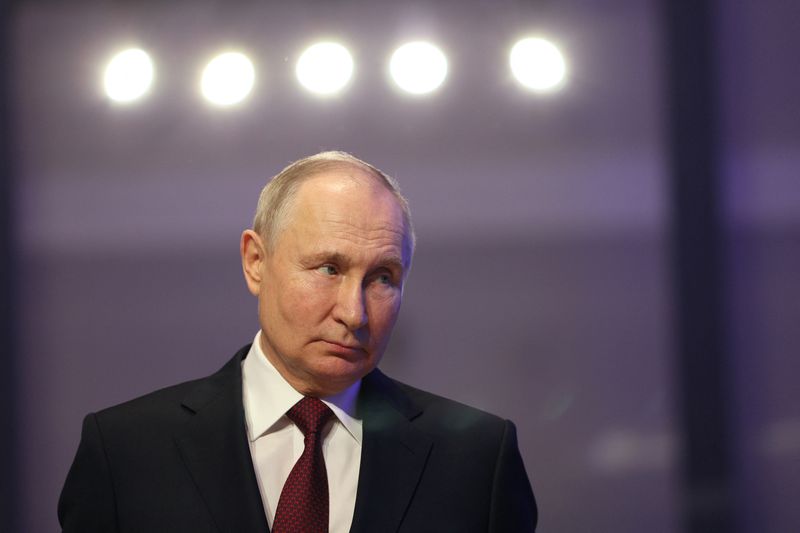By Alexander Marrow and Darya Korsunskaya
MOSCOW (Reuters) - Russia's industrial output growth slowed in October as the unemployment rate dropped to a record low 2.9%, federal statistics showed on Wednesday, with deepening labour shortages showing signs of cooling Moscow's military production capacity.
Kremlin aide Maxim Oreshkin last week sought to portray low unemployment as evidence of Russia's economic prosperity, but President Vladimir Putin and his economy ministry have acknowledged Russia is facing a staffing shortage, particularly of skilled labour.
The central bank estimates that two thirds of companies are facing labour shortages, with the metals, chemicals and machine-building industries feeling the strain most acutely.
Adding to Russia's labour woes, furloughed workers at Volkswagen (ETR:VOWG_p)'s former plant in Russia are being offered redundancy, the union representing them told Reuters on Wednesday, as the new owners struggle to find a partner to resume output six months after VW finalised its exit from the country.
Growth in real wages, which are adjusted for inflation and reported with a one-month lag, slowed to 7.2% in September, Rosstat's data showed, down from 9.5% in August and below analysts' forecasts of a 9% increase.
Salaries in Russia have been rising since autumn 2022, driven partly by the labour shortage. Analysts say wages are growing faster than productivity and the central bank has warned of the impact it has on inflation.
"To retain or attract staff, companies raise wages after which they inevitably raise prices again to compensate for the cost of rising salaries," Central Bank Governor Elvira Nabiullina said last month.
Industrial output rose 5.3% year-on-year in October, down from a 5.6% rise in September and driven once again by military production. Rosstat said industrial output had grown since March at a monthly rate of more than 5% compared with the corresponding months of 2022.
But when discounting seasonal factors, industrial production dropped 0.4% in October, Rosstat said.

October's retail sales, a key gauge of consumer demand, rose 2.0% compared with September and were 12.7% higher than October 2022, Rosstat said.
Russia's export-focused economy has coped with sanctions better than either Moscow or the West anticipated when those opposed to Russia's February 2022 invasion of Ukraine sought to punish and isolate Putin's Russia. It is set to rebound this year from a 2.1% decline in 2022.